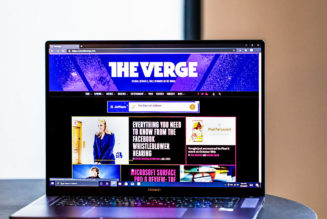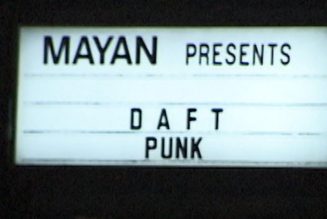Good morning, dear readers! The temperature went from 55 to 25 overnight, and my sinuses are in so much pain that I’ve been hanging upside down in the dark for relief. Like a bat.
Why podcasts pop up to cover Ukraine
New this morning, I reported a piece for The Verge about why so much coverage of Ukraine has taken the form of pop-up podcasts. The labor required to report out and produce a show isn’t easily condensed to match the breakneck speed of the news cycle, yet NPR, The Telegraph, independent teams, and more have rallied resources toward the medium.
A lot of these teams have reason to believe that this commitment is worth it — and many of them have a lot of the same reasons for thinking so. Many, after all, have quickly started new podcasts before, and some have even been able to repurpose the feeds once they end to help boost future endeavors.
I’d love it if you checked out the article over on the site. It’s an interesting trend, with some historical precedent and some forward-looking predictions.
Spotify shuts down all services in Russia
Late Friday, Spotify announced it would suspend service in Russia because of the country’s new law designed to stifle accurate coverage of its invasion of Ukraine. Spotify expects to complete the shutdown by early April.
“Unfortunately, recently enacted legislation further restricting access to information, eliminating free expression, and criminalizing certain types of news puts the safety of Spotify’s employees and possibly even our listeners at risk,” said a Spotify spokesperson, who asked not to be named because of the sensitivity of the situation.
Spotify previously suspended paid access to its service in Russia, losing an estimated 1.5 million paying subscribers as a result. But it had kept the broader service online until now, in the name of keeping information free-flowing to residents.
This move is the latest Spotify has taken in response to the invasion, mirroring the general actions of other big tech companies like YouTube and Apple. In early March, Spotify closed its local offices in the country (a move with potential long-term consequences) and removed the Russian state outlets RT and Sputnik from the platform.
Spotify tests a podcast discovery feed
On Friday afternoon, I spotted a change to the Spotify app: an entire podcast tab added to the bottom of the screen. A Spotify spokesperson said that the company routinely tests these sorts of updates — some that stick around and some that don’t — but that they “don’t have any further news to share at this time.”
Well, you’re in luck, ‘cuz I do.
:no_upscale()/cdn.vox-cdn.com/uploads/chorus_asset/file/23352513/1.jpeg)
This tab, as it currently stands, is not a place to corral your subscribed shows or downloaded episodes but is instead a pretty sparse page meant to introduce you to new ones. The page lets you swipe vertically through cards of different shows, with no clear order to what shows up next. When an episode is centered on the screen, a clip of its audio starts to play, and the page seems to recommend a mix of episodes from shows you subscribe to and those you don’t. Here’s a screen recording as captured by hashtag inventor Chris Messina, who aptly describes this interface as “TikTok-style.”
As far as actual discovery goes, the episodes that are featured, at least for me, are mostly from shows I currently listen to. Otherwise, they’re ones that already live under the “Popular with Listeners of ____” section on the Home tab.
:no_upscale()/cdn.vox-cdn.com/uploads/chorus_asset/file/23352515/2.jpeg)
The feature appears to have come out of Spotify’s acquisition of Podz, a podcast discovery app, which it purchased for around $50 million last year, as noted by TechCrunch.
Since Spotify doesn’t have this kind of TikTok-like counterpart for music discovery — and considering how precious the real estate of the main navigation bar is — this is a significant move, one in line with the company’s pursuit of podcast prominence. It’s also a glimpse at what real-time transcripts could look like on the platform.
While the audio plays, dynamic transcripts flash on screen, which is something that Spotify hasn’t yet made available across shows — and is hopefully a preview of a broader feature to come. Streaming companies, though, have given us reason to expect transcripts to be less than stellar when they do appear, and this is definitely not an exception.
The caption in the screenshot above, which reads “that is a little hot of viewing it is,” is taken from the audio of two speakers. It should read “That is a lot of viewing,” as spoken by one person, and “It is,” as spoken by the other. Instead, it sounds like Yoda.
iHeart and Sirius venture further from radio
Yesterday, we got two more podcast developments from companies that made their name doing something other than podcasts: SiriusXM just announced its first streaming channel dedicated to a podcast, and iHeartMedia announced a whole new podcast company. The two companies continue to push back the edges of their radio reputations, and both these moves are in line with that course.
SiriusXM’s new channel, “Freakonomics Radio Network,” will air both newly released episodes of the podcast Freakonomics Radio and those from its archive, like a podcast feed but shuffled and… always on. The channel will also feature episodes from other shows on the Freakonomics podcast slate, like People I (Mostly) Admire and No Stupid Questions. This differs from other SiriusXM deals that, yes, involve podcast hosts but put them in charge of wholly new shows with more traditional live-radio formats.
iHeartMedia enters its own recent non-radio endeavor with Collab, launching a separate podcast studio called Curativity that’s said to be “creator-centric;” it’ll start with family-friendly material, headed by an established creator. Two existing series, Kids Animal Stories and Kids Short Stories, are the first to be named to Curativity’s network, with a third, the newly announced Spyology Squad, set to premiere next week. All three come from the kids audio personality, Mr. Jim, whom I do not know, but those kiddos sure seem to.
On Being to go independent
And last week, Krista Tippett announced that both she and her long-running show On Being would be leaving public radio, transitioning to an independent model and ramping down from her weekly cadence. The ability to retain a program, take it elsewhere, and change it is akin to the freedom that many public-radio employees have expressed wanting from the field; while this shouldn’t be seen as a representative experience, it’s at least an example.
In a letter to stations that air On Being (almost 400 in total), Tippett wrote that public radio has been intrinsic to the show’s existence and growth ever since it started under a different name almost 20 years ago. “We will always understand ourselves as colleagues and family to you,” she wrote. “Indeed, we would love to find ways to partner with you and your communities through our work beyond this moment, and we will communicate about that with specificity later this year.”
Respect for radio notwithstanding, sometimes folks need to flex their creative muscles — or just take a break. “After hosting 52 weeks of programming a year for close to 20 years, I’m ready to move to a more sustainable rhythm and to open space and time for writing, public engagement, and new extensions of our content in the world that is emerging,” Tippett wrote. Heard that.
Googling “pirate lingo for goodbye” didn’t really yield anything, so I guess that’s not how Aria will be signing off today.









